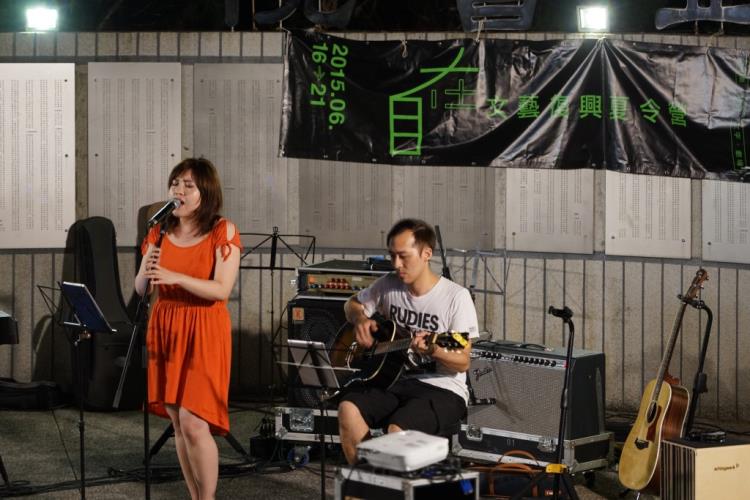A full time researcher in university and an amateur art commentator, Cheong obtained his master’s degree in Public Policy at Willy Brandt School of Public Policy at the University of Erfurt and is formerly a clarinettist of the Erfurt Philharmonic Orchestra in Germany. He loves classical music and now serves as conductor of the orchestra in Escola Choi Nong Chi Tai, by which he can connect art to everyday life. Cheong is also a book lover.

Not long ago, I participated in an art camp organised by Hong Kong’s Renaissance Foundation. Over six days, our activities included video, literature, music and theatre workshops, as well as seminars, creative activities, film screenings, poetry readings, concerts, sharing sessions and a big arts extravaganza at the end. Each team had to create a performance for the stage based on the theme “free.”
The participants came from Mainland China, Hong Kong and Macao, and were largely made up of university students or professionals with an amateur or professional interest in art. As such, most of them already had a solid grounding in art. Over six days and nights, they mixed poetry, music, video and body art, resulting in creations that included elements of each of these art forms. The camp made me feel great as I realised I could still work with students even so long after I’ve left school. In addition, it was inspiring to see the creative desire of all the participants. In art, creativity is always the most important thing; skills are secondary. What moved me the most was the daring creativity of everyone there.
In discussions with the participants, I saw how thoughtful and brave they were. One point of discussions was the theme of the camp, “free.” From a sociological, class-based perspective, the class warfare as described by Marx aimed to liberate the masses from the control of the capitalists until a classless society is achieved. But history has shown that it is extremely difficult, and cannot make us “free.” Existentialism, which originated during the Industrial Revolution, describes the way humans became cogs in a giant machine and lost their own identities. Human existence is trivial in the grand scheme of history. Buddhism differentiates between being free, and living an unobstructed life. Mahayana Buddhism teaches six paramitas, or virtues, that constrain one’s freedom. These include virtues of giving, discipline, endurance, diligence, contemplation and wisdom. Therefore from Buddhism’s point of view, one must accept constraints on one’s freedom to reach enlightenment. Only after these paramitas are perfected can a painless world, a state of emptiness be achieved — a state of true freedom. In these three interpretations of freedom, the common theme is control, to varying degrees. The broad historical sweep of Marxism, the individualistic approach of Buddhism and the philosophical basis of existentialism are different ways of exploring the idea of being free, and the shifting sense of individual identity in times of great change.
During the camp, I truly felt the importance of letting different elements of art collide with one another. After all, an artistic sense is present in everyone, waiting for a chemical reaction to happen when a collision happens, turning a creative idea into reality and laying the foundation for the development of the arts. There has been a big push in Macao in recent years to promote cultural and creative industries. For the creators, having an interactive platform to communicate with and learn from others is essential. As society progresses, it will reach a point where it demands more in terms of spiritual fulfillment. Only through discussions and sharing can creativity truly be manifested. Education also shouldn’t just be about teaching, but should involve discussions among peers. I dare say that if there was such an arts camp in Macao, it would greatly benefit the development of the arts here and nurture more bold and creative artists.